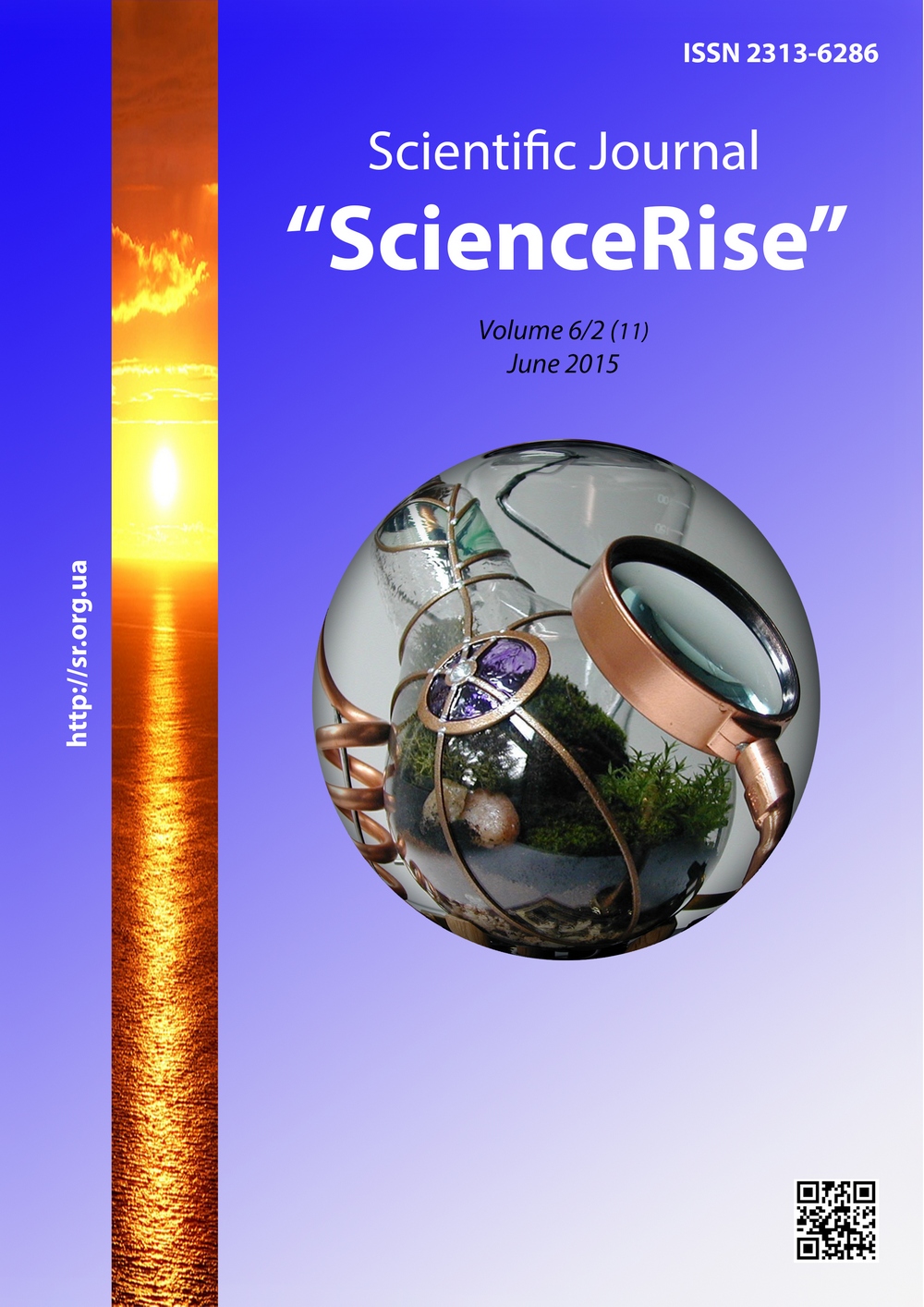Інформаційні технології оцінки стану здоров'я студентів
DOI:
https://doi.org/10.15587/2313-8416.2015.44357Słowa kluczowe:
програмне забезпечення, оцінка фізичного рівня здоров’я, проба Мартіне, моніторинг стану здоров’я студентівAbstrakt
У статті розглядаються питання щодо використання інформаційних технологій оцінки стану здоров'я студентів вищих навчальних закладів. Також розглянуто методи оцінки рівня фізичного здоров’я по методиці Апанасенко та Науменко, дослідження проби Мартіне при аналізі стану студентів при фізичних навантаженнях. Було пораховано і приведено в індекс маси тіла, життєвий індекс, силовий індекс (динамометрія руки), індекс Робінсона і час відновлення ЧСС
Bibliografia
Antomonov, M. (2006). Yu mathematical processing and analysis of medical and biological data. Kiev, 558.
Malikov, N. V., Bogdanov, N. V., Kuznetsov, A. A. (2005). The use of new computer technologies in otsenkefunktsionalnoy preparedness and functional state of an organism. Slobozhanskiynaukovo-sportivniyvіsnik, 8, 237–240.
Vovk, V. M. (2002). Automated diagnostic systems control the physical condition of students. Pedagogіka, psihologіya that health bіologіchnі fіzichnogo vihovannya problemi i Sport, 9, 82–89.
Sergienko, K. N. (2005). Interactive computer monitoring the level of physical development and health of schoolchildren Ukraine. Olympic Sport and Sport for All. Kiev, 280.
Kashuba, V., Khmelnitska, I. (2007). The Biovideo Software for Biomechanical Analysis of Human Movement. Proceedings of 12th Annual Congress of the European College of Sport Science. Jyväskylä, 67–69.
Landa, B. H. (2005). Methodology of comprehensive assessment of physical development and physical preparedness. Moscow: Soviet Sport, 192.
Izaak, S. I. (2005). Monitoring of physical development and physical preparedness. Soviet Sport, 196.
##submission.downloads##
Opublikowane
Numer
Dział
Licencja
Copyright (c) 2015 Юлія Валеріївна Антонова-Рафі, Микита Віталійович Нікітенко

Utwór dostępny jest na licencji Creative Commons Uznanie autorstwa 4.0 Międzynarodowe.
Our journal abides by the Creative Commons CC BY copyright rights and permissions for open access journals.
Authors, who are published in this journal, agree to the following conditions:
1. The authors reserve the right to authorship of the work and pass the first publication right of this work to the journal under the terms of a Creative Commons CC BY, which allows others to freely distribute the published research with the obligatory reference to the authors of the original work and the first publication of the work in this journal.
2. The authors have the right to conclude separate supplement agreements that relate to non-exclusive work distribution in the form in which it has been published by the journal (for example, to upload the work to the online storage of the journal or publish it as part of a monograph), provided that the reference to the first publication of the work in this journal is included.

